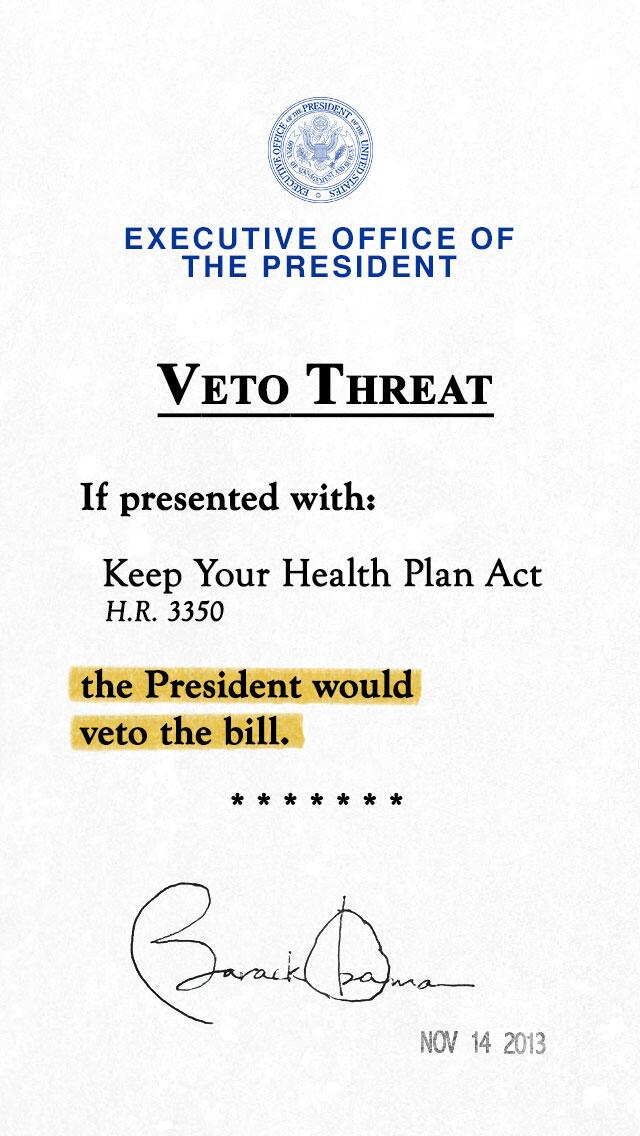Why we must not ration health care
Peter Singer in the New York Times writes Why We Must Ration Health Care:
You have advanced kidney cancer. It will kill you, probably in the next year or two. A drug called Sutent slows the spread of the cancer and may give you an extra six months, but at a cost of $54,000. Is a few more months worth that much?
Different people have different answers. By allowing different answers instead of mandating the same answer for everyone, the price will drop and the value will rise, and everyone will ultimately benefit.
If the government is in charge, and they say, no, it isn’t worth that much, then that’s the end of it. The company can’t make any money off of the medicine so it’s dead in the water. It will probably never even reach that stage because the manufacturer will know ahead of time that there’s no market for the treatment.
If the patient is in charge—either in charge of their actual care or in charge of the level of insurance they purchase—some will say no and some will say yes. The company producing the medicine will have money to continue research on this medicine in order to bring the price down or the value up and sell it to more people.
Singer argues that letting people choose whether it’s worth it for them will raise everyone else’s insurance, or everyone’s taxes if insurance is paid for by taxes. But in a truly open system, that’s not true. It will only raise the insurance of those people who choose to pay for coverage at that level of care. As long as the government doesn’t step in and say that insurance companies must provide care at the same level for everyone, people can make that choice. And the manufacturer of Sutent or other expensive drugs can slowly increase the value of their treatment and decrease the cost of their treatment so that more and more people decide it’s worth it.
In other words, if the government is in charge of the level of care people receive, Sutent won’t be available to anyone, or will be available at a fixed high cost that never goes down because there is no reason to develop slightly lower-cost versions. If the limit is set to $40,000 and the manufacturer thinks the best they can do is shave off 10%, it will never drop from $54,000 to $48,000. And they’ll never discover the break-through that brings it down to $40,000 that then gives some other company the idea for an innovative technique to bring it to $30,000, etc. Nor will there be an incentive to increase the value from six months to nine months, and so on until it contributes to finding an actual cure.
When the price and value of something is such that more people will buy it if the price goes slightly down or the value goes slightly up, then a free market will make those improvements when possible. But if the only market forces are fixed bureaucratic price points, those improvements will only be made if the manufacturer knows they can reach those arbitrary points. Some treatments will never be made public because the original design doesn’t meet any of the bureaucrat’s artificial hurdles. And this means that other players in the market will never have the opportunity to make further improvements.
But if people choose their own level of care, Sutent, or some treatment with equivalent or better effects, will first be available at $54,000, and then at $48,000, and then at $40,000, then at $30,000… and on down to $1,000 or less. And while the price is going down, the extra time patients receive from it will go up: six months, nine months, a year, two years… that kind of competition doesn’t exist when the only competition is “will the government ration it today?”
- November 12, 2025: Magicare: The Quest for the Holy Bureaucrat
-

The Legend of Affordable Healthcare in America: If you want single payer, you must believe in magic.
I’ve written a lot about how science is becoming indistinguishable from magic in the minds of so much of the beltway crowd and the anointed—and not in the good science fiction way. Science is not something to be believed in, like religion, or voted on like politics. Science is the scientific method, nothing else. To paraphrase Feynman, if it disagrees with the scientific method it is wrong. That is the only key to science.
Science is not legislating the value of π or calling a council of the wise. That’s religion. Science is acknowledging the ignorance of experts, not their expertise. Every time you hear about science being “settled” or about a “consensus”, what you’re hearing is little more than a cargo cult religion wearing a cheap suit of scientific trappings and buzzwords.
One of the worst places for this substitution of magic for science is in medicine. Without the scientific method, medicine will kill both directly, through action, and indirectly by inaction. Nothing illustrates the cargo cult in medicine as clearly as this meme about health care that I ran across last year on a gaming group. The text specifically called out Americans:
The Legend of Affordable Healthcare: An adventure specifically designed for American D&D players.
To someone who both plays D&D and has done some thinking about health care and health insurance, the accompanying image is both profoundly weird and revelatory. For those not familiar with D&D’s iconography, the image pictured under the text “affordable healthcare” is of a priest—a “cleric” in D&D parlance—using magic to heal a sick or injured character.
Not a doctor. Not a scholar. A wielder of magic. This is neither an appeal to logic nor for better science. This is a religious tract.
It isn’t in any way necessary or even likely that a D&D-related affordable health care joke has to involve magic spells. D&D has had non-divine, completely non-magical medicine since at least the advent of its fifth edition, which was well over a decade ago. The skill “Medicine (Wis)” is literally on every character sheet. It’s on the character sheet of warriors and rogues as well as of wizards and priests.
A Wisdom (Medicine) check lets you try to stabilize a dying companion or diagnose an illness.
- August 9, 2017: Community health acts to improve Obamacare
-

For years, Republicans have campaigned on one thing: the insane damage that the Unaffordable Care Act is causing to health care. The insane prices that people who don’t get their coverage from employers have to pay for health coverage, due to Obamacare.
And they failed to pass reform, partly because they tried to pass a huge complicated mess that did not state clearly what the benefits were. Politicians were able to hide behind platitudes, ignoring the real issue: the ACA has vastly increased the cost of health coverage, and vastly reduced the quality.
Even Democrats in congress recognize just how expensive ACA plans have become, and freak out when it looks like they might have to follow the same rules we do when paying for it. They’re also now talking about bipartisan ways of fixing the mess that Obamacare created.
Here’s my suggestion: one page bills that clearly state the benefit of that particular provision. Make it very clear what the anti-reformers are voting against, and make it very easy for their opponents to hand out the exact text of what was voted against and say, this is what they were voting against. This isn’t a summary, this is literally the bill that they refused to pass.
“All it does is let you have the same benefits businesses do, all it does is give you choice, all it does is bring innovation, and my opponent refused to let you have that opportunity. Here, you can read the bill yourself. Yes, the actual bill.”
The personal health savings parity and portability act
The main reason that health coverage is not portable is that employer-provided coverage gets tax benefits that private coverage does not. When your employer docks your pay to pay for your health coverage, that comes out before taxes. When you pay for coverage out of pocket, it comes after taxes. That makes a big difference, big enough that it isn’t worth it for you to have portable coverage.1
This system is crazy. If you got the same tax break on coverage you want that you get on coverage your employer chooses for you, you might be more inclined to carry your custom coverage from job to job. I know very well I would have. I looked into it, but it made no economic sense due to the insane privileging of employers docking my pay to choose coverage for me.
- August 2, 2017: Democrat Chris Murphy: Obamacare is “the end of health care”
-

Now that congress is facing the joke, they’re no longer laughing.
Senator Chris Murphy is angry at President Trump, because Trump has “threatened” to enforce the law as written. The law in question is the misnamed Affordable Care Act, which, when congress passed it, required members of congress and their staff to live under its rules as well and pay for their own plans. But because it turned out the Affordable Care Act is actually Unaffordable, President Obama’s administration exempted them from that law, in a very convoluted manner that makes even less sense than the law itself and is almost certainly in itself illegal, not just unethical.
President Trump has threatened to revoke that exemption. Senator Murphy doesn’t want that. If President Trump requires congressional offices to live under the health care law that congress requires us to live under, Murphy says, that will “cut off health care”. It will “end health care”.
This is a clear threat to Congress: pass my health bill or as punishment I will end health care for you, your staff, & your constituents. Trump isn’t saying these things will happen naturally. He has the power to cut off health care for leg branch employees & crater exchanges.
That’s right. Democrats know what Obamacare’s effects are. They know that the ACA is really the Unaffordable Care Act. Just like its conservative critics predicted it would be, that it was for all practical purposes designed to be unaffordable.
And if they have to live under it the same way we do, it’s the same thing as ending health care, it’s as if Trump “cut off health care” for them.
He doesn’t seem to realize that this means that health care has already been cut off and ended for those of us who do not receive the special subsidies congress gets.1
The way the ACA originally applied to congress is that they were eligible only for the same subsidies anyone else using Obamacare would be eligible for. But most congressional staffers make more than $30,000 a year, some significantly more than that. That’s right about where ACA subsidies ended for individuals, at the time.
That’s also right about where the average personal income lands, too. And it turns out that the cost of health care plans under the ACA are pretty onerous when you’re only making $30,000 a year.
- July 7, 2017: Economies of scale and government-run health care
-

One of the common arguments in favor of government takeovers of a service is that government agencies can perform the service cheaper because of “economies of scale”.
Since insurance is a requirement… more premiums should bring the price down.
This argument shows a profound misunderstanding of what an economy of scale is and how scaling up works to raise the quality of a service or product while also bringing the price down.1
More premiums, like more of any service, only bring prices down when people are free to buy or not to buy, and when buyers are free to negotiate with sellers for what they want to buy and what they are willing to pay for it. The ACA, for example, mandates what people are required to buy within very narrow boundaries, and mandates that they must in fact buy it (or pay a penalty). This is guaranteed to cause prices to rise drastically. The skyrocketing prices and reduced access to health care providers that we now see was predicted during the law’s passage based on that simple economic principle.
Economies of scale only work when they allow a leaner competitor to discover a way to provide the same or better service at a cheaper price.2 An economy of scale doesn’t automatically cause the same old processes by the same old business or government agency to suddenly become cheaper. If anything, large scale in a monopoly will cause prices to rise and quality to drop as competition moves from competing to reach more people and persuade them to purchase the service, to instead competing for turf inside the bureaucracy.
This shift to bureaucratic infighting causes increased prices to pay for the extra soldiers in the turf war; and it causes lower quality service as the employees turn inward and pay more attention to the bureaucracy than to their customers. Why shouldn’t they? Their customers have no choice.
- February 22, 2017: How many legs does the ACA have?
-

“If you call a boondoggle insurance, how much insurance do you have?”
The news media keeps harping that the Republican congress has no replacement for the ACA. This is untrue, and they know it, or they should. The problem is not that there is no replacement for the ACA. Congress has already voted on several replacements which were vetoed by President Obama, and there are several more that have been proposed.
The superficial problem, such as there is one, is deciding on which replacement to use and which parts of each replacement.1
The real problem is that Republican have a strong tendency to pre-compromise. Even when they say that insurance works better and produces better medical care without the massive regulatory burden placed on it by the ACA, they still accept the premise: that they are talking about insurance. In fact, none of the people who have signed up on the exchanges or through ACA plans have insurance.2
If you can sign up after you get sick, that is not insurance.
Democrats will argue that this is being mean. This is untrue, and they know it, or they should. It’s simply the truth, it’s what insurance is: insurance is a means of insuring against some future calamity. If a calamity has already happened, it is impossible to insure against it. Anything that pretends to allow you to insure against a calamity that has already happened is not insurance, and cannot be insurance.
Anything that claims to insure past calamities is a scam. The ACA is a huge scam imposed by Democrats on the United States.
Our first Republican president once famously and apocryphally asked, “if you call a tail a leg, how many legs does a dog have?” He could as well have been talking about Obamacare. A tail is not a leg, and if you pretend it is you will experience massive failure.
Some Democrats will argue that ACA plans are health plans, and health plans are good. But they’ll quickly revert to saying Republicans want to take away people’s health insurance, because calling them health plans changes the narrative. It changes the negotiations and the nature of the compromises. There are, after all, other ways to deal with people who can’t afford health care than taking away everyone’s insurance.
- August 31, 2016: Why does the EpiPen cost so much?
-

If the FDA were to approve copies of this device, available to soldiers since the seventies, the cost of an EpiPen competitor would likely drop to ten or twenty dollars—and the cost of an EpiPen accordingly.
People are complaining, rightfully so, about Mylan’s overpricing of the EpiPen. But most people are complaining about things that cannot be changed, when there are simple changes that could fix the problem in the future. They’re complaining about Big Pharma, rather than the systemic causes of Big Pharma. Part of the problem is that they don’t understand the problem. For example, one online petition complains that:
The EpiPen contains only $1 worth of medicine, but you’re charging hundreds of times that amount.
But it isn’t the medicine that costs so much money. It’s the pen itself. That’s what Mylan has a monopoly on, and that monopoly on the pen, not on the medicine, is the reason that the EpiPen is so expensive.
A lot of people are also complaining, based on headlines, that the Epipen was “developed entirely with taxpayer money” or that “American taxpayers funded 100% of research used to developed Big Pharma’s EpiPen”. But the articles behind those headlines don’t back them up. The articles I’ve found don’t mention any money going from the government to inventor Sheldon Kaplan or Survival Technology, the company Kaplan worked for.
So while I’m generally in favor of publicly-funded research being in the public domain, that doesn’t seem to be the case here.1
But the original version of the EpiPen, the ComboPen, was invented in 1973. The earliest patent I can find was approved in 1987. That patent ran out in either 2004 or 2007.2 Viable generic versions of the EpiPen should already be available, but they’re not.
- July 31, 2015: Public Citizen lies to its own supporters about single-payer health care?
-

“Keep adding mass to that black hole and it will suck less.”
Probably because I used to be a member of the ACLU, I often get mailings from far-left causes, such as Public Citizen. I usually read them, too: I can be convinced that I’m wrong, and sometimes they’re so out of step with reality that they make a good blog post.
This mailing, from Public Citizen President Robert Weissman calling for single-payer health care, falls into the latter category.
At the start, Weissman claims that 45,000 Americans every year die due to lack of health insurance. Now, on the face of it, this doesn’t sound like a good argument for single-payer or anything else. Today, everyone has health insurance: they either have it under the ACA or they have it under Medicaid. Even if they are eligible for the ACA and forego it, the sign-up periods are both ubiquitous and often extended. This means that they can acquire insurance for long-term issues. Single-payer can’t improve on that.
And, of course, hospitals are still required to accept short-term issues regardless of ability to pay.
Even with long-term issues prevention providers don’t seem to ask about ability to pay. They provide the service and then ask for payment, and some don’t even hound you for inability to pay. I know this from personal experience.
There is even further evidence that health insurance, or lack thereof, doesn’t change mortality rates here. Medicare doesn’t improve outcomes, and virtually everyone at 65 gets it—and “Medicare-for-All” is what Public Citizen is calling their single-payer system.
The 45,000 number comes from political advocates for… a single-payer system. So the argument is a bit circular here.
- May 29, 2015: Strangling the iPhone of health care
-

Can you imagine being afraid to give this up as your daily computer because you have never seen an iPad or iMac, and believe that a laptop weighing less than three pounds is not only impossible but dangerous to even imagine? That’s where we are with health care today. Except that instead of being stuck with a computer of the eighties, we’re stuck with health plans of the forties. (Image courtesy Johann H. Addicks, CC-BY-NC-ND 3.0)
In the latest Commentary, a Dale Edmondson writes in that its all well and good to say that employee wages would increase if employers didn’t pay for their health insurance, but wouldn’t this just mean that the employee would have to spend the same money to get the same care?
The author of the original piece, Benjamin Domenech, writes that there would be significant savings because
By funneling benefits through employers, you increase transaction costs, subsidize demand, and insulate consumers from price signals. We see this particularly in the health-care arena, where the subsidization of employer-sponsored health insurance and the problems of third-party payer form a particularly dangerous combination.
There is no question that reducing the number of middlemen from three, four, or even five1 down to one would vastly improve our health care market, reducing prices and increasing quality.
But there is a bigger issue involved that almost always accompanies government mandates of a particular form of something. We do not know how many better forms exist.
The assumption is that an individual market would replace, on an individual level, the very strange system of health “insurance” that has arisen around government mandates, subsidies, and tax incentives. But there is no reason to assume that this is true, and in fact a direct connection between people and their health needs would almost certainly bring about not just a better version of what we have now, but entirely new means of meeting health care needs customized to each individual.
- October 14, 2014: Most Open and Transparent Lies Ever
-
Here is something I knew but didn’t remember: last year, the exchange prices were all out on October 1. This year the administration has chosen specifically to delay listing them, over a month, until after the election.
There are multiple meanings of transparent. And open, for that matter. When we were promised the most open and transparent administration ever, what we were promised were open disregard and transparent lies.
- October 2, 2014: Only four-year-old policies grandfathered
-
Since October is Health Literacy Month, Aetna posted to Facebook asking “What confuses you?” about health insurance.
Since grandfathering definitely confuses me, I asked “Which policies are grandfathered and which are canceled by the ACA (and why)?” To their credit, they responded privately after asking for my insurance information.
Grandfathered members are only those that had active coverage before March 23, 2010. Anyone after that is considered non-grandfathered and would be subject to any changes mandated by the federal government due to ACA changes. If you have any additional questions please let us know.
So my final guess in the parent post is correct: only policies that are over four years old are going to be grandfathered past 2014. Anyone who purchased health insurance after March 23, 2010, cannot “keep their health insurance if they like it.”
- September 15, 2014: If you like your health insurance, you can go screw yourself
-

I’ve been expecting this letter ever since I signed up for private health insurance under the wire last December. President Obama and the Senate refuse to work with the House and Republicans to allow people to keep their insurance plans as promised. The president issues his edicts outside of the legislative process, and the Senate refuses to hear any fixes. This means that, no, I don’t get to keep my plan if I like it. Unless the exchanges have changed considerably since I looked at them last year, it also means my insurance premiums are going to nearly double—assuming I don’t decide just to take the tax penalty.
New Affordable Care Act (ACA) changes are here, but you can keep your Aetna health plan through December 31, 2014
In 2013 we told you that you’d need to move to an ACA-compliant plan when your current policy ended in 2014. We’ve since extended your policy. This allows you to stay in your current plan through December 31, 2014.
This is nice, but not that nice. Without the extension, my current plan goes through December 15, 2014. I deliberately moved to Texas in mid-December last year in order to get in under the ACA wire and have good health insurance for as long as possible before the ACA mess kicked in. But Obama wants to get even with me.
The letter continues:
Good news! There’s nothing you need to do until the 2015 Open Enrollment period begins.
Key points to note
- Your monthly payment will stay the same.
- Your deductible, out-of-pocket costs, and benefit limits remain the same and will not reset.
- If you have previously received a Summary of Benefits and Coverage (SBC), it lists the benefits available through December 31, 2014.
On reading this, I thought, even though I had been expecting this letter, that somehow insurance companies were allowed to continue existing policies indefinitely and I hadn’t heard about it! Then I realized, on reading the next paragraph, that this applied only to the 15-day extension.
While your current plan is available through December 31, 2014, it cannot be renewed. All new policies must be ACA-compliant for the calendar year 2015. Open Enrollment for 2015 will run from November 15, 2014 to February 15, 2015. Before your policy ends, you will get information about plan options available to you.
That is, my monthly payment will not remain the same, nor will my deductible.
- September 3, 2014: The dark side of bureaucratic health care
-
There’s a well-known problem with studies on humans. While we’re willing to let rats and even monkeys die in order to learn more about the mysteries of life and health, we aren’t willing to increase the risk of death in humans. Good studies even have to be double-blind, which means that even the person providing the new procedure or medicine doesn’t know what which group each patient is in: if they’re giving some people a new medicine and others a placebo, even the doctor doesn’t know which patients are getting medicine and which patients are getting the placebo.
Studies that start killing people will be halted before the study is complete. That’s human nature, and it’s good.
But human nature has its dark side, too, and that dark side tends to show up in government bureaucracies. That’s the tendency to hide people behind paperwork, and the tendency, when their programs run up against reality, to treat reality as defective. And when people start questioning decisions that deviate further and further from reality, to obfuscate and hide their true intentions.
That’s what struck me about the SUPPORT1 study by the National Institute of Health and the Department of Health and Human Services:
Medical personnel routinely give supplemental oxygen to babies who are born with immature lungs. Too much oxygen can cause severe eye damage, including a blood vessel disease and blindness called retinopathy. Too little oxygen can lead to brain damage and death.
The NIH-funded experiment used the test babies in an attempt to find the sweet spot for preemies yet to be born: the lowest level of oxygen that would preserve vision, yet be sufficient to prevent brain damage and death.
To get the answer, researchers arbitrarily assigned infants to either a high-oxygen or low-oxygen group. Because, researchers say, all oxygen levels fell within the generally accepted range, they argue the babies received the same “standard of care” as babies not in the study. None of the consent forms mentioned a risk of death from the oxygen experiment.
The problem with the standard of care argument is that it was untrue. In real life, babies don’t get a single oxygen level throughout their time on life support. Their oxygen level is varied depending on their response to it. This is because too much oxygen can blind them, and too little can kill them, and every baby is different.
This study not only did not allow varying oxygen levels, it hid the restriction from doctors! The machines were altered to display changes when no changes were occurring. The medical staff thought they were working to save the babies, when in fact their efforts were blocked and the feedback faked so that they wouldn’t know.
It will thus not come as a surprise that the study found that high-oxygen babies ended up with more serious vision disorders, and low-oxygen babies were more likely to die.
- November 15, 2013: Fixes, fast and furious
-

H.R. 3350 is the closest to President Obama’s latest promise to allow continuing policies through 2014. His veto threat makes it difficult to trust his promise to not enforce the law against continuing them.
The executive summary is that Ron Johnson wants to ensure that individuals can keep their current plans and also add family members as necessary. Mary Landrieu wants to ensure that individuals can keep their current plans, but nobody else can get on. And Fred Upton wants to ensure that individuals can both keep their plan and that new individuals can continue buying plans, but only through 2014.
And President Obama hasn’t proposed any changes to the law, but he is crossing his fingers behind his back and telling insurers that even though these plans will remain illegal, he’ll wink at any transgressions and not enforce the law, no way, won’t you please break the law for me? You can tell he’s sincere because he’s promised to veto the law congress wants to pass to legalize what he’s asked insurers to do.
States and insurers are oddly not lining up for the President’s “fix”. If you think it’s confusing, imagine that you’re the state regulator having to take it into account, or that you’re a member of an insurance company’s legal staff tasked with giving advice to the board on whether they should or should not break the law at the President’s request.
Meanwhile, Marco Rubio has noticed that there’s an unlimited bailout for insurance companies hidden in Obamacare’s two thousand pages. His bill—not yet introduced—will remove that provision to ensure that taxpayers are not on the hook for lowballed insurance rates causing a bailout later. Maryland has already attempted to force insurance companies to lowball their rates; at least one, Aetna, chose to leave Maryland rather than join Maryland’s scam on taxpayers.
- November 2, 2013: Firewall affordable care act failures
-

“Hello, State Farm? I’d like some cheap insurance, please.”
The “Affordable” Care Act is two thousand pages1 of math-challenged disasters waiting to happen, such as the latest discovery of massive hikes to individual insurance on January 1 when people start moving to the exchanges.
If you purchased a rider to your car insurance to cover all of your gas, you would expect the rider to cost a bit more than your monthly gas costs—it has to pay for your gas, and it has to pay for the secretaries, computer programmers, and so forth to implement the new gas payments. If your car insurance was mandated to cover everyone’s gas costs without regard for how much anyone uses, you would expect car insurance to go up by the same amount, plus, if you’re an efficient gas user, the difference between your usage and the average.
It’s just math. The money has to come from somewhere, and it’s going to come from you. Government-run exchanges like this are going to increase costs.
Hopefully, America will reject the Democrats’ government-run health insurance exchanges in November 2014 just as California rejected the Democrats’ government-run power exchanges back when they caused price escalations in San Diego in 2003.
You’d think at some point Democrats would realize that government-run exchanges are a guaranteed cost disaster. But they haven’t realized it yet, or they just don’t care; they are not going to let the ACA get repealed and replaced with something that works. What they will allow, however, is a piecemeal fixing of its failures as they become obvious. We already repealed the crazy 1099 reporting requirement which required “that companies track and submit to the IRS all business-to-business transactions over $600 annually”. It would have meant price increases at all levels of our economy, because at that low threshold you never know if some mediocre ten dollar or twenty dollar transaction every once in a while will add up, over a year, to $600. At first, the White House fought the repeal but they eventually acquiesced.
- February 3, 2012: Health care reform: walking into quicksand
-

Your new, government-approved laptop from the state computer exchange, complete with all required features—and no more. (Image courtesy Johann H. Addicks, CC-BY-NC-ND 3.0)
The first step, when you walk into quicksand, is to walk back out. You’ll find it a lot easier to build a bridge over the mire when you’re not sinking into it
We have a huge problem with health care costs in this country, problems caused by our strange system, mostly set up through tax breaks to employers but not individuals, that disconnects the people who need health care from the people who provide it. Rather than having people who need care purchase from the people who provide care, we set up a system that requires “insurance” even for routine, predictable costs. But the person who needs the insurance in order to get the care doesn’t buy the insurance either. They look for a job that pays for the insurance that pays the people who provide the care.
The doctor gets paid by the insurance company. The insurance company gets paid by the employer. The patient… also gets paid by the employer. The patient is completely disconnected from their own health care. It’s a system that obviously can’t work in the long run. Yet, when it fails, we set up a system—ObamaCare—that adds yet another layer, so that in order to get health care we’ll need to look for a job that pays for insurance that’s micro-managed by government that pays the people who provide the care amounts approved by government for approved care.
Either form is a recipe for higher prices and poorer care. And the reason we moved to the worse system that is going to make for even higher prices and even poorer care is that the original system raised prices and reduced care.
We need to back out of the quicksand before we can build the bridge.
While reading Priming the Pump, I started thinking about the advances that happened just because of computer-makers trying to cut costs to meet buyer needs. And then I thought, what if we bought computers like we do our health care? We wouldn’t buy computers ourselves. We’d get them through our employers. But our employers wouldn’t buy them for us either. They’d buy us a plan that guarantees us a computer when we need one. What can the plan buy us? The federal government and our state government both have strict rules on that.
- The Egalitarian Cruelty of the NHS: Jacob Sullum at Reason Magazine
- “Debbie Hirst, a woman with metastasized breast cancer, wanted to take Avastin. The NHS refused to pay for it, saying it was too expensive. That much is par for the course in a system that holds down costs by rationing care according to standards set by a single central authority. But then Hirst, with the support of her oncologist, decided to raise the $120,000 she’d need to pay for the drug on her own, mainly by selling her house. The NHS said she was perfectly free to do that, but then she would have to pay for all of her care out of pocket, a financial burden that was far beyond her means.”
- Why We Must Ration Health Care: Peter Singer
- “The debate over health care reform in the United States should start from the premise that some form of health care rationing is both inescapable and desirable.”
More health care
- COVID Lessons: The Health Care Shutdown
- It’s fortunate that COVID-19 was not as bad as the experts said, because our response was almost entirely to make the problem worse. We shut down everything that could help, including health care for co-morbidities. We locked the healthy and the sick together, and cut people off from routine care. Most of the deaths “from” COVID-19 were probably due more to our response than to the virus itself.
- Community health acts to improve Obamacare
- Democrats now want to talk about how to improve Obamacare. Here’s how to do it.
- Why government-funded cancer research is dangerously unlike the Manhattan Project
- A “Manhattan Project” for cancer is likely to delay cancer cures, and make what cancer cures we find more expensive—like the Epipen. And kill people, like the original Manhattan Project.
- Why does the EpiPen cost so much?
- With Mylan raising the cost of the EpiPen even as the EpiPen enters the public domain, people are complaining—but they’re complaining in ways that will raise health costs even more.
- Strangling the iPhone of health care
- We have no idea what great improvements in health care we have strangled through our current system of government regulations, subsidies, and tax incentives.
- 17 more pages with the topic health care, and other related pages
